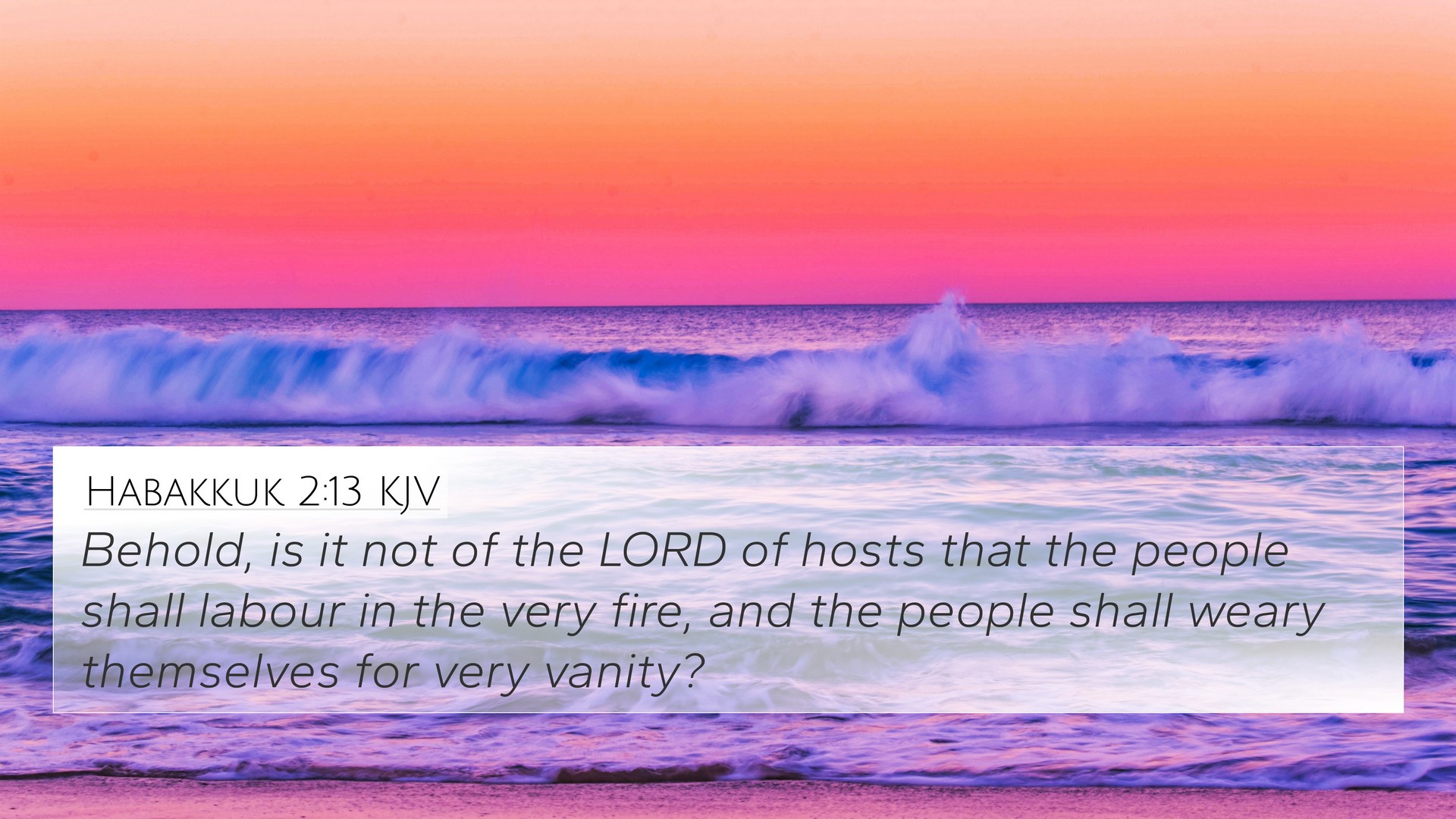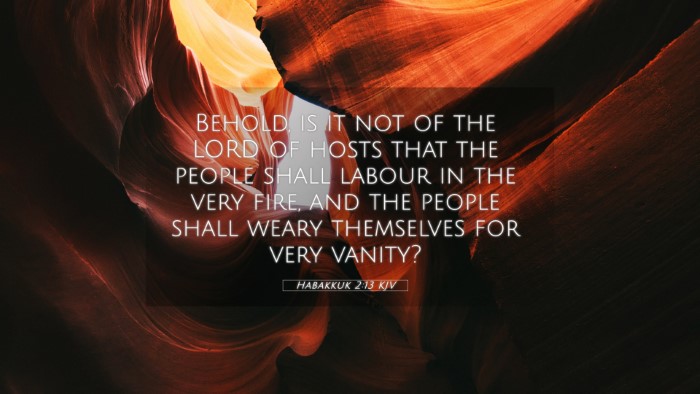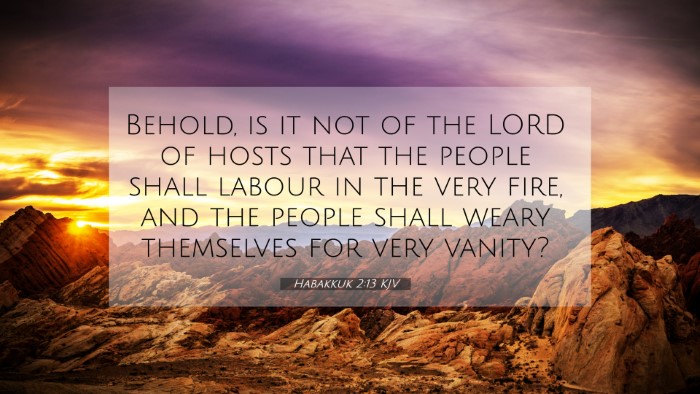Old Testament
Genesis Exodus Leviticus Numbers Deuteronomy Joshua Judges Ruth 1 Samuel 2 Samuel 1 Kings 2 Kings 1 Chronicles 2 Chronicles Ezra Nehemiah Esther Job Psalms Proverbs Ecclesiastes Song of Solomon Isaiah Jeremiah Lamentations Ezekiel Daniel Hosea Joel Amos Obadiah Jonah Micah Nahum Habakkuk Zephaniah Haggai Zechariah MalachiHabakkuk 2:13 Similar Verses
Habakkuk 2:13 Cross References
Behold, is it not of the LORD of hosts that the people shall labour in the very fire, and the people shall weary themselves for very vanity?
Uncover the Rich Themes and Topics of This Bible Verse
Listed below are the Bible themes associated with Habakkuk 2:13. We invite you to explore each theme to gain deeper insights into the Scriptures.
Habakkuk 2:13 Cross Reference Verses
This section features a detailed cross-reference designed to enrich your understanding of the Scriptures. Below, you will find carefully selected verses that echo the themes and teachings related to Habakkuk 2:13 KJV. Click on any image to explore detailed analyses of related Bible verses and uncover deeper theological insights.

Jeremiah 51:58 (KJV) »
Thus saith the LORD of hosts; The broad walls of Babylon shall be utterly broken, and her high gates shall be burned with fire; and the people shall labour in vain, and the folk in the fire, and they shall be weary.

Isaiah 50:11 (KJV) »
Behold, all ye that kindle a fire, that compass yourselves about with sparks: walk in the light of your fire, and in the sparks that ye have kindled. This shall ye have of mine hand; ye shall lie down in sorrow.
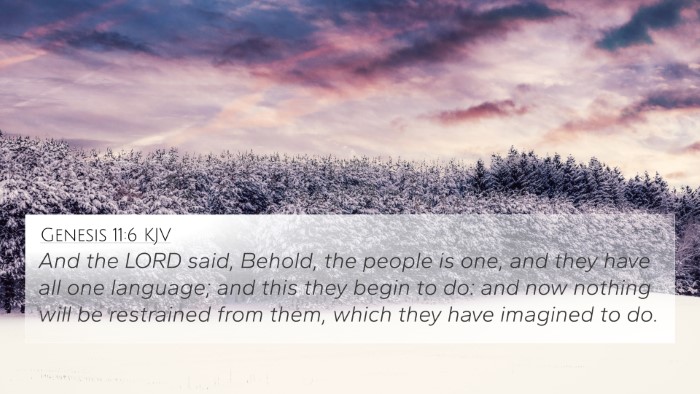
Genesis 11:6 (KJV) »
And the LORD said, Behold, the people is one, and they have all one language; and this they begin to do: and now nothing will be restrained from them, which they have imagined to do.

Isaiah 55:2 (KJV) »
Wherefore do ye spend money for that which is not bread? and your labour for that which satisfieth not? hearken diligently unto me, and eat ye that which is good, and let your soul delight itself in fatness.

Isaiah 41:5 (KJV) »
The isles saw it, and feared; the ends of the earth were afraid, drew near, and came.

Psalms 127:1 (KJV) »
Except the LORD build the house, they labour in vain that build it: except the LORD keep the city, the watchman waketh but in vain.

Job 5:13 (KJV) »
He taketh the wise in their own craftiness: and the counsel of the froward is carried headlong.
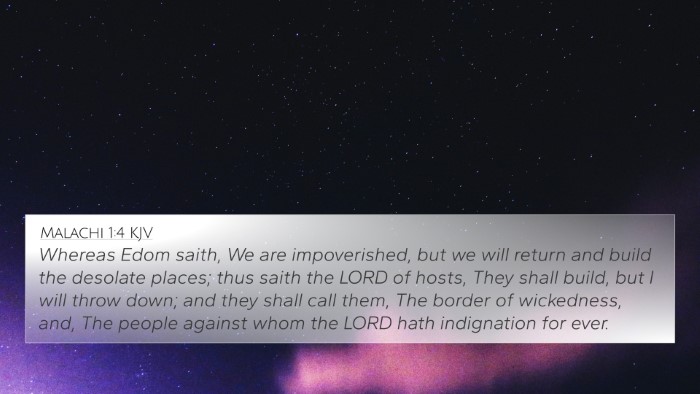
Malachi 1:4 (KJV) »
Whereas Edom saith, We are impoverished, but we will return and build the desolate places; thus saith the LORD of hosts, They shall build, but I will throw down; and they shall call them, The border of wickedness, and, The people against whom the LORD hath indignation for ever.

Psalms 39:6 (KJV) »
Surely every man walketh in a vain shew: surely they are disquieted in vain: he heapeth up riches, and knoweth not who shall gather them.
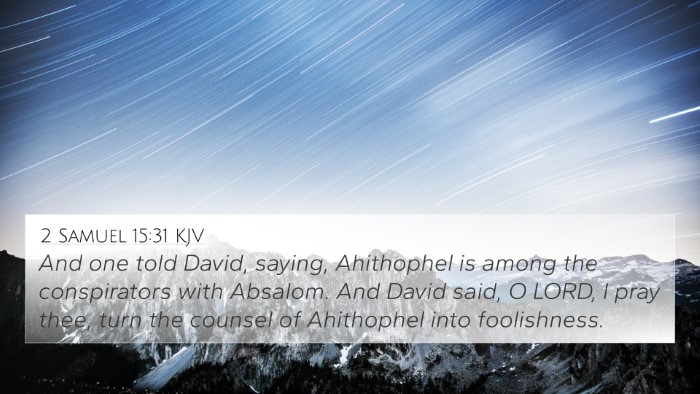
2 Samuel 15:31 (KJV) »
And one told David, saying, Ahithophel is among the conspirators with Absalom. And David said, O LORD, I pray thee, turn the counsel of Ahithophel into foolishness.

Jeremiah 51:64 (KJV) »
And thou shalt say, Thus shall Babylon sink, and shall not rise from the evil that I will bring upon her: and they shall be weary. Thus far are the words of Jeremiah.
Habakkuk 2:13 Verse Analysis and Similar Verses
Understanding Habakkuk 2:13
Habakkuk 2:13 states: "Behold, is it not of the LORD of hosts that the peoples labor to feed the fire, and nations weary themselves for very vanity?" This verse delves into profound themes of human endeavor and the ultimate futility of worldly pursuits when disconnected from the divine will.
Verse Meaning and Interpretation
This verse highlights the futility of labor that is not aligned with God's purpose. The prophet Habakkuk, addressing the Israelites, points out that their efforts, when directed towards vain pursuits rather than God's glory, ultimately lead to destruction.
- Matthew Henry's Commentary: Henry emphasizes the vanity of human endeavours when separated from God's guidance. He indicates that laboring without God's blessing results in nothing but emptiness, as we are merely feeding flames that consume without adding value.
- Albert Barnes' Notes: Barnes reflects on the idea that nations exert great effort in pursuits that yield no eternal reward. He underlines that when people's labors are aimed at self-exaltation rather than serving God, such efforts cannot withstand the test of time.
- Adam Clarke's Commentary: Clarke points out the metaphor of "fire" to signify judgment and destruction. He notes that the people are laboring for vanity, which implies that they are caught in a cycle where their efforts only lead to their own demise.
Thematic Connections and Bible Cross-References
Habakkuk 2:13 resonates with various themes throughout Scripture, inviting readers to explore connections between Bible verses. Below are key cross-references that illuminate similar themes of futility, divine purpose, and the consequences of human endeavors:
- Ecclesiastes 1:2: "Vanity of vanities, all is vanity!" This echo establishes the futility of earthly pursuits.
- Isaiah 40:23-24: These verses discuss God's sovereignty over nations, emphasizing human efforts in light of divine authority.
- James 4:13-14: This passage warns against boasting about tomorrow's plans without acknowledging the Lord's will.
- Matthew 6:33: "But seek first the kingdom of God and his righteousness, and all these things will be added to you." This verse contrasts the fruitless pursuit of worldly interests with the significance of God-centered living.
- 1 Corinthians 3:13: Paul explains that the quality of every person's work will be tested by fire, illustrating the theme of lasting versus temporal significance.
- Proverbs 16:3: "Commit your work to the LORD, and your plans will be established." This aligns with the idea that only God's blessing can give true purpose to our endeavors.
- Romans 8:20-21: These verses suggest that creation was subjected to futility, parallel to Habakkuk's insights on human labor.
- Philippians 3:19: Here, Paul describes those whose god is their belly and who set their minds on earthly things—fitting within the context of vain pursuits.
- Galatians 6:7: This verse warns that a person reaps what they sow, reinforcing the consequences of aligning one's work with vanity.
- Psalm 127:1: "Unless the LORD builds the house, those who build it labor in vain." This succinctly captures the essence of Habakkuk’s admonition.
Reflections on Application
As modern readers of Habakkuk 2:13, we are compelled to reflect on the nature of our endeavors. The pursuit of success, wealth, or recognition may often be seen as admirable, yet we must challenge ourselves to examine the motive behind our labor. Are we investing our time and resources in efforts that align with God's plan, or are we merely laboring for vanity?
Using Cross-Referencing for Deeper Study
Utilizing tools for Bible cross-referencing can significantly enhance our study experience. A Bible concordance can help you identify key terms and themes, while a cross-reference Bible study guide may offer structured pathways through interconnected verses. Such resources are invaluable for illuminating the framework of Scripture, providing clarity on the connections between passages, and affirming the theological truths present in Habakkuk 2:13.
How to Use Bible Cross-References Effectively
Here are some methods to consider:
- Identify Keywords: Start by highlighting key terms that stand out in the verse, such as "vanity", "labor", or "fire".
- Consult a Concordance: Use a Bible concordance to find other verses that include the identified keywords.
- Apply Contextual Understanding: When cross-referencing, pay attention to the surrounding context of each verse to ensure accurate interpretation.
- Use Thematic Groupings: Organize verses thematically to explore how different passages discuss similar subjects, enriching your understanding of Biblical teachings.
- Engage in Inter-Biblical Dialogue: Consider how different books of the Bible converse with one another, enabling a richer comprehension of the text.
- Document Your Insights: Make notes of how certain verses resonate with each other to aid in future studies or sermon preparations.
Conclusion
Habakkuk 2:13 serves as a poignant reminder of mankind's tendency to lose sight of God's design in our labors. As we delve deeper into Scripture and employ cross-referencing methods, we better grasp the monumental themes of vanity, purpose, and divine authority. Ultimately, recognizing the dialogues between various Biblical texts can affirm our faith and call us to align our lives with God's eternal plan.
